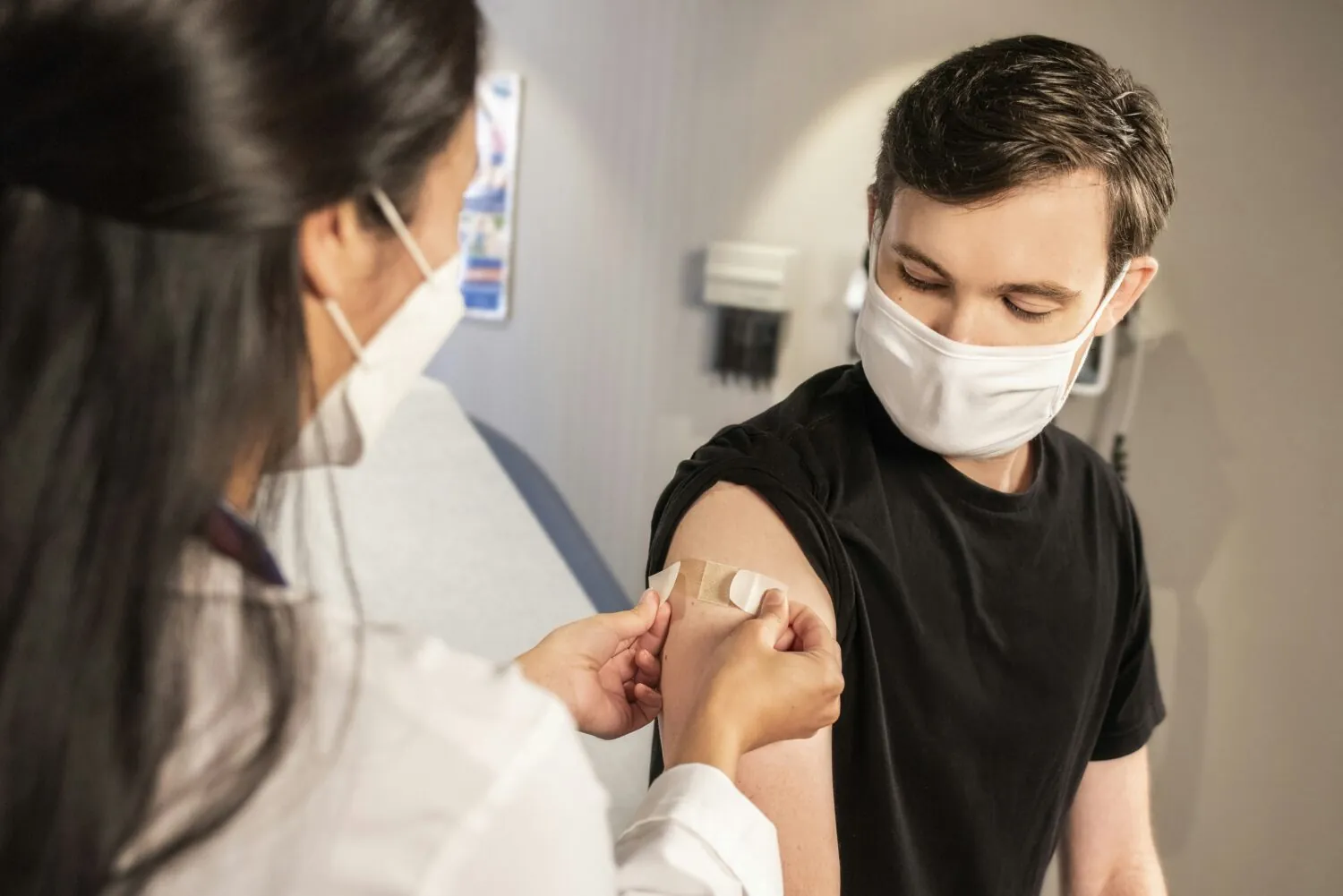
A letter to the profession on 31 December aimed to set out the ‘scientific and public health rationale’ for changing the dosing schedule and included a new evidence statement from the Joint Committee on Vaccination and Immunisation (JCVI).
The four CMOs said that they were ‘confident that based on publicly available data as well as data available to the JCVI that the first dose of either Pfizer or AstraZeneca vaccine provides substantial protection within 2-3 weeks of vaccination for clinical disease, and in particular severe COVID disease’.
‘In terms of protecting priority groups, a model where we can vaccinate twice the number of people in the next 2-3 months is obviously much more preferable in public health terms than one where we vaccinate half the number but with only slightly greater protection,’ the letter said.
The new evidence statement from the JCVI said that short-term efficacy was around 90% for the Pfizer/BioNTech vaccine and 70% for the Oxford/AstraZeneca vaccine.
JCVI statement
The statement said that, taking into account the seven days after the Pfizer second dose was administered when it would not be expected to provide additional protection, its phase 3 trial showed vaccine efficacy of about 90% ‘from two weeks after the first dose and for the following two weeks’.
‘It does not indicate [efficacy] beyond this time point as participants had received a second dose,’ the JCVI added.
Protection from a single dose of the Oxford/AstraZeneca vaccine was assessed in an exploratory analysis, which showed that ‘increased immunogenicity was associated with a longer dose interval’.
‘Efficacy is currently demonstrated with more certainty for dose intervals from 8 to 12 weeks. Data for intervals longer than 12 weeks are limited,’ the JCVI said.
Last week Pfizer issued a statement saying that its vaccine’s safety and efficacy had not been evaluated on any dosing schedule other than 21 days between jabs, adding that ‘there are no data to demonstrate that protection after the first dose is sustained after 21 days’.
However, the JCVI highlighted that the Moderna vaccine, which like the Pfizer jab is based on mRNA technology, does have data to support high efficacy up to ‘108 days after the first dose’.
The JCVI said: ‘There is currently no strong evidence to expect that the immune response from the Pfizer-BioNTech vaccine would differ substantially from the AstraZeneca and Moderna vaccines.’
Public health approach
The CMOs said that moving to a 12-week gap between vaccinations was ‘a classic public health approach centred on doing as much good for as many people in the shortest possible timeframe, within the available vaccine supplies, against a background of immediate disease activity.’
Despite the assurances some doctors remained concerned about the approach. The Doctors Association UK (DAUK) has written to the four CMOs, the four UK health secretaries and the JCVI raising a number of issues around the change.
Along with highlighting the lack of evidence around the Pfizer vaccine schedule change, the letter also said there were ‘potential severe’ medico-legal consequences for clinicians if there was a ‘COVID-related adverse outcome’ because of a delayed second dose.
Second dose jabs
It also raised the prospect that extending the dosing schedule meant that clinicians were ‘more likely to face the scenario of mixing vaccines due to supply issues and the number of vaccines ordered’. Current advice in the Green Book is that people should ideally receive the same vaccine for their second dose, although it does allow for a different jab to be administered if the first vaccine is unavailable.
There are currently trials underway in the UK looking at mixing vaccines, however the DAUK said at present there was no data to support this approach.
Dr Vinesh Patel, from the DAUK’s GP committee, said: ‘There are a great many concerns that the change in vaccine strategy and dosing regimen has been communicated poorly and represents an attempt to stem public health failings. There appears to have been little to no involvement with frontline clinicians in making this decision, and subsequently chaos is ensuing.
‘We can see the principle behind the recent CMO and JCVI advice; the priority is to provide some degree of protection for as many as possible. However this is a huge gamble, and one made without the data to back this strategy.’
Article available here: https://www.gponline.com/cmos-seek-reassure-gps-12-week-covid-19-vaccine-gap/article/1703552






Comments